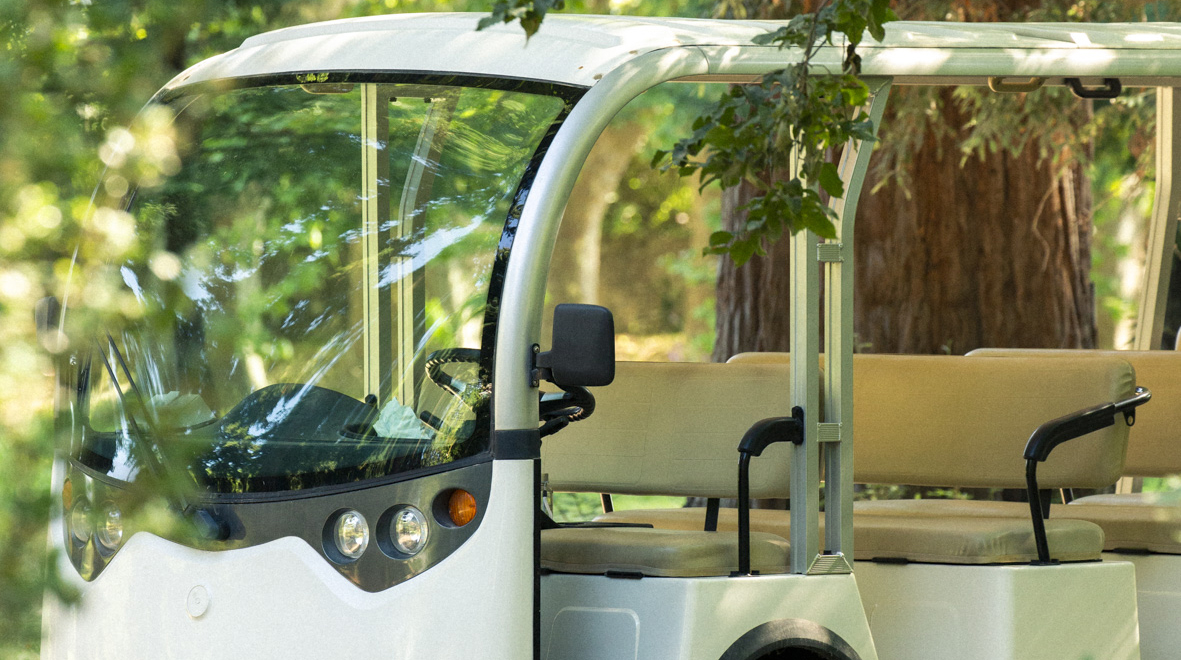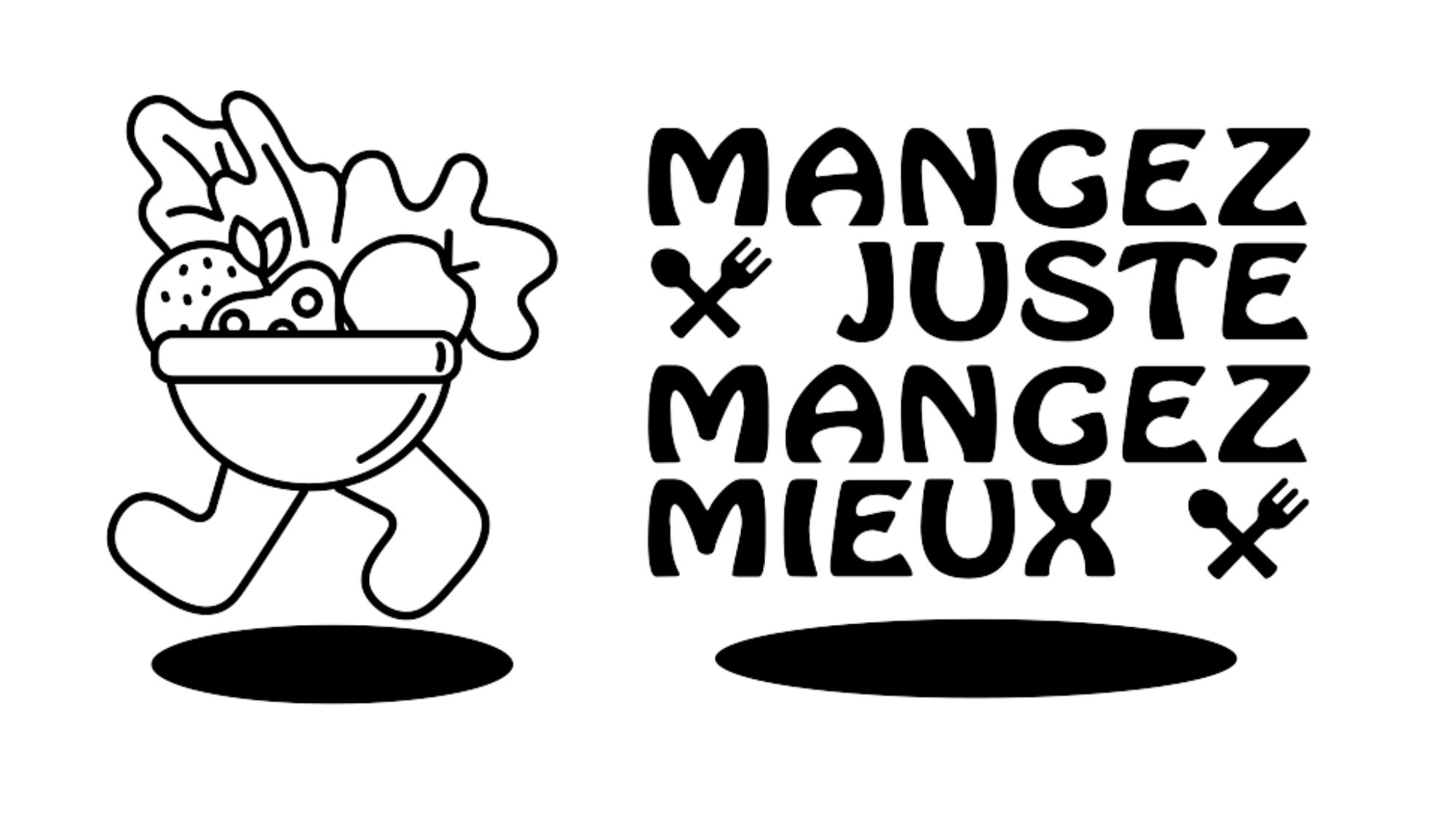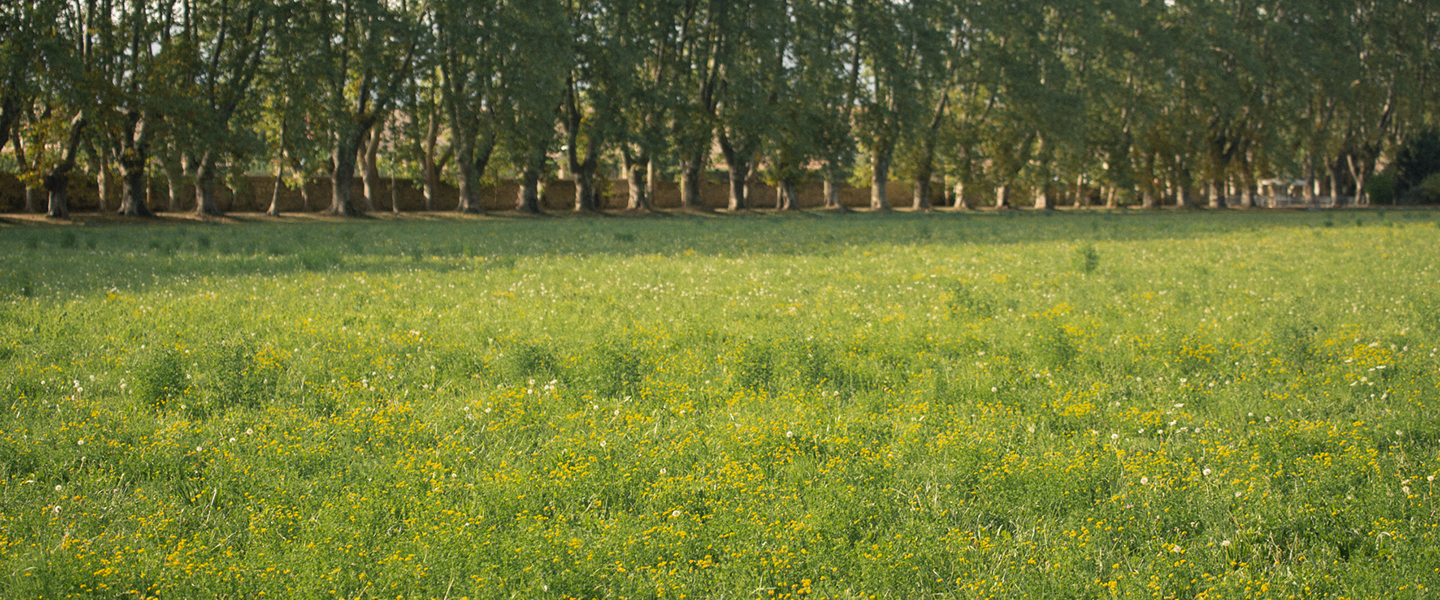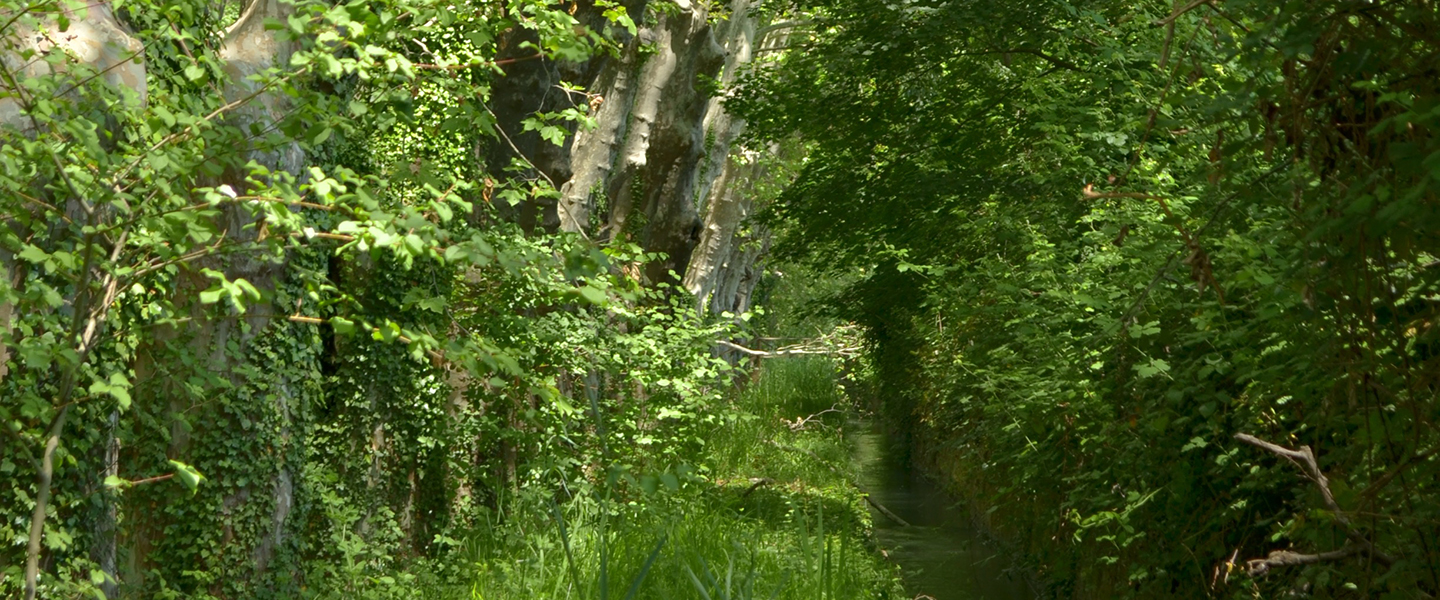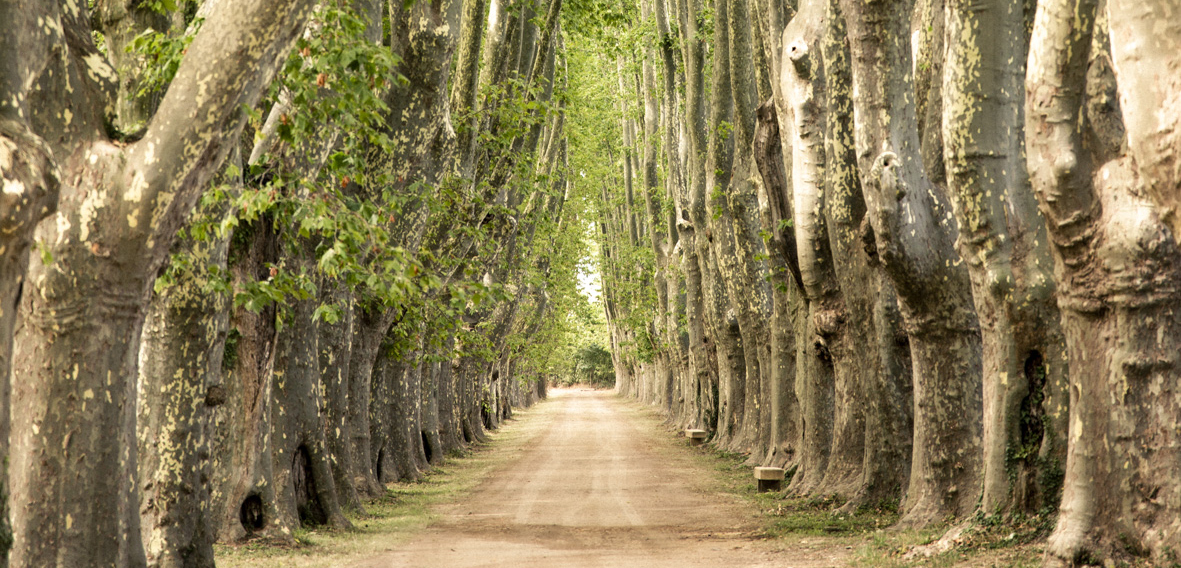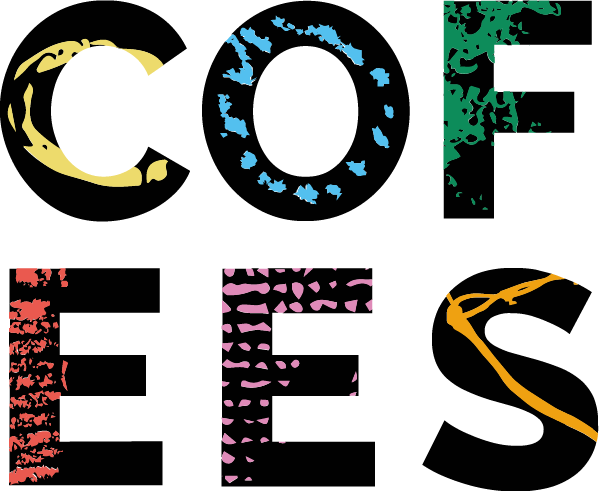The Festival is committed to an eco-responsible approach, for a sustainable and mutually supportive event. As part of its CSR approach, the Festival raises awareness among artists, teams and festival-goers, and pursues a policy of rationalizing travel, waste management and eco-responsible purchasing. The Festival is committed to sustainable use of the site and to being a movement of solidarity.
Mobility

- The Festival offers a shuttle service between Aix-en-Provence and the Parc du Château de Florans for evening concerts. The shuttle departs from the Hôtel Renaissance, 1h15 before the start of the concert.
- The Festival encourages festival-goers to carpool with Covoiturage Simple.
- To find out how you can get around by public transport, simply visit the Zou! platform, which will calculate your journey for you!
- Rehearsal rooms are available for artists at their accommodation and at the Festival site, to avoid unnecessary travel. Carpooling is also encouraged for artists during transfers, to optimize transportation.
- Bicycle parking is available for the public as well as for artists and Festival employees.
- The Festival provides a list of local accommodations for festival-goers.
- The Festival recruits mostly seasonal employees and local volunteers, which limits travel.
Accessibility
- We make every effort to ensure that all Festival stages are accessible to people with disabilities. The Festival guarantees a made-to-measure welcome and placement adapted to everyone, whatever their disability.
More info on the Accessibility page - Electric shuttles are available in the park for people with reduced mobility, from the parking lot to the stands/to the stage.
Controlling energy and fluid consumption
- A number of water fountains have been installed in the park as a result of landscaping work and the installation of drinking water connections. These fountains provide easy access to water for the public, artists and crews alike. To your water bottles!
- With the help of Alsatian acoustician Othon Schneider, the Festival soon asserted its innovative character by creating a conch shell with natural acoustics, offering spectators a unique open-air listening experience without the need for a sound system.
- Lighting throughout the park has been replaced by LEDs.
- Communication with the public is gradually being dematerialized, with the creation of the e-ticket in 2020.
Responsible nutrition
- The Festival is committed to promoting short supply chains and responsible purchasing, working in partnership with restaurants in La Roque d’Anthéron. Catering for the teams, volunteers and the public is provided by a local caterer.
- With the Ensembles en Résidence scheme, the Festival encourages young musicians to eat locally, by providing them with meal vouchers valid in most of La Roque d’Anthéron’s restaurants, bakeries and cafés.
Waste management

- Dual-flow garbage cans and signage are in place throughout the Park. Waste sorting is carried out by the technical team throughout the Festival.
- Since the installation of the fountains, the Festival no longer gives out bottled water, but instead distributes water bottles to artists, volunteers and crews.
- Festival butts are collected by Lemon Tri, which recycles and transforms them into street furniture.
- To limit food waste, unsold meals still fit for consumption are redistributed to the festival teams or to a local charity.
Preserving biodiversity
The Parc du Château de Florans is a unique and fragile ecosystem that must be protected, and its preservation is at the heart of our concerns.
- The park is managed sustainably throughout the year. Trees are maintained, the diversity of plant species is enhanced, plantings are regularly renewed and the plant heritage is managed.
- The Festival has invested in Qista anti-mosquito bollards, a local company, which provide pesticide-free mosquito control in the Park. Manufactured in France, the bollard simulates the presence of humans by dispersing recycled carbon dioxide and emitting olfactory lures, which attract female mosquitoes and trap them inside. Biodiversity is also preserved, since male mosquitoes and other insect species (cicadas, bees, butterflies, ladybugs, etc.) are not attracted by the trap.
- A partnership has been established with a monton breeder in La Roque d’Anthéron: the Park’s meadow becomes a pasture. We also make fodder from the meadow’s grasses.
Château de Florans Park is a unique and fragile ecosystem that must be protected.
- An agricultural engineer is responsible for monitoring and maintaining the park. Her mission is to monitor the health of various tree species and plants, with a projection on the long-term sustainable management of the Park.
- At the end of each winter, the central meadow is grazed by sheep to limit the use of machinery.
- The Festival has invested in Qista mosquito bollards, it is a local company, which enables the mosquito control of the Park without pesticides. Manufactured in France, this bollard simulates the presence of humans by dispersing recycled carbon dioxide and emitting olfactory lueurs, which attract the female mosquito and trap it inside. Biodiversity is also preserved as male mosquitoes and other insect species (bees, butterflies, ladybirds etc.) are not attracted by the trap.
Solidarity
- The Festival collaborates with ESAT La Farigoule, located in La Roque d’Anthéron, on a number of missions and worksites. In 2021, workers from ESAT La Farigoule‘s wood workshop built and replaced the Festival’s stage floor. The wood from this project was sorted and recycled: the shavings and sawdust were used by the village’s horses as bedding, and the wood scraps were made available to local residents for heating. In 2024, La Farigoule made 113 vests for Festival volunteers.
- The Festival pools its resources and offers events the use of its equipment and materials.
- In 2019, and as part of an action by the Collectif des Festivals Eco-responsables et Solidaires en PACA (COFEES), a study was carried out to assess, among other things, the economic impact of the Festival on the Aix-Marseille Metropole area. Festival-goers spent nearly 4.5 million euros in local shops.
Since 2017, Le Festival has thus been a member of the Collectif des Festivals Eco-responsables et Solidaires en Région Sud (Cofees). Carriers of an unprecedented joint initiative, 43 structures in the South Provence-Alpes-Côte d’Azur region have joined forces to propose innovative and concrete actions in environmental and societal matters. This proactive approach aims to raise awareness and encourage cultural festivals to adopt responsible practices. This involves sharing knowledge and pooling resources to help reduce environmental impact. The aim is also to encourage dialogue and collaboration with local players and public authorities. Because cultural events must assert their civic role.
Study on transports and economical impact of FestivalsThe 47 member festivals are held in 6 départements of the South of France, covering a wide range of artistic disciplines.
Ecofestival guide